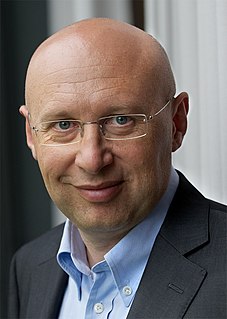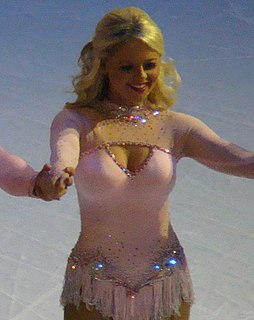A Quote by Stefan Hell
I got bored with the topic; I felt this was 19th century physics. I was wondering if there was still something profound that could be made with light microscopy. So I saw that the diffraction barrier was the only important problem that had been left over.
Related Quotes
Of all the men who attacked the flying problem in the 19th century, Otto Lilienthal was easily the most important. ... It is true that attempts at gliding had been made hundreds of years before him, and that in the nineteenth century, Cayley, Spencer, Wenham, Mouillard, and many others were reported to have made feeble attempts to glide, but their failures were so complete that nothing of value resulted.
The 19th century Mormons, including some of my ancestors, were not eager to practice plural marriage. They followed the example of Brigham Young, who expressed his profound negative feelings when he first had this principle revealed to him. The Mormons of the 19th century who practiced plural marriage, male and female, did so because they felt it was a duty put upon them by God.
In the beginning of the 19th century, maybe forty percent of women and fifty percent of men could produce a signature, which meant that they'd had at least three years of education because it was in third grade that people started penmanship in the 19th century. And of course black people could get killed if they got caught teaching themselves to read in some parts of the country.
Crystallographers believed in X-ray results, which are of course very accurate. But the x-rays are limited, and electron microscopy filled the gap, and so the discovery of quasicrystals could have been discovered only by electron microscopy, and the community of crystallographers, for several years, was not willing to listen.
That was the thing: Once, the difference between light and dark had been basic. One was good, one bad. Suddenly, though, things weren’t so clear. The dark was still a mystery, something hidden, something to be scared of, but I’d come to fear the light, too. It was where everything was revealed, or seemed to be. Eyes closed, I saw only the blackness, reminding me of this one thing, the most deep of my secrets; eyes open, there was only the world that didn’t know it, bright, inescapable, and somehow, still there.
I didn't know what to think, but what I felt was magnetic and so big it ached like the moon had entered my chest and filled it up. The only think I could compare it to was the feeling I got one time when I walked from the peach stand and saw the sun spreading across the late afternoon, setting the top of the orchard on fire while darkness collected underneath. Silence had hovered over my head, beauty multiplying in the air, the trees so transparent I felt like I could see through to something pure inside them. My chest ached then, too, this very same way.
I have known her longer, my smile said. True, you have been inside the circle of her arms, tasted her mouth, felt the warmth of her, and that is something I have never had. But there is a part of her that is only for me. You cannot touch it, no matter how hard you might try. And after she has left you I will still be here, making her laugh. My light shining in her. I will still be here long after she has forgotten your name.
As I started reading about it, I saw that at the beginning of the 19th century, outside of New England - which was an unusually literate place - practically no one could read or write. And even in New England, the overall rate was only about 60 percent. That still means four out of 10 people couldn't put their name to a will.
I left film because I felt that photography was my art. It was something I could do on my own, whereas film was so collaborative. I thought as a photographer I could make something that was artistic and that was mine, and I liked that. And it wasn't until I got back into film and I have very small crews and I could do very tiny filmmaking that wasn't 100 people that I still felt that I was making something artistic as a filmmaker. So, you know, I'm an artist, and whether it's photography or film, I want my voice to be there and I think my voice is very strong in this film.
I was really interested in 20th century communalism and alternative communities, the boom of communes in the 60s and 70s. That led me back to the 19th century. I was shocked to find what I would describe as far more utopian ideas in the 19th century than in the 20th century. Not only were the ideas so extreme, but surprising people were adopting them.

































